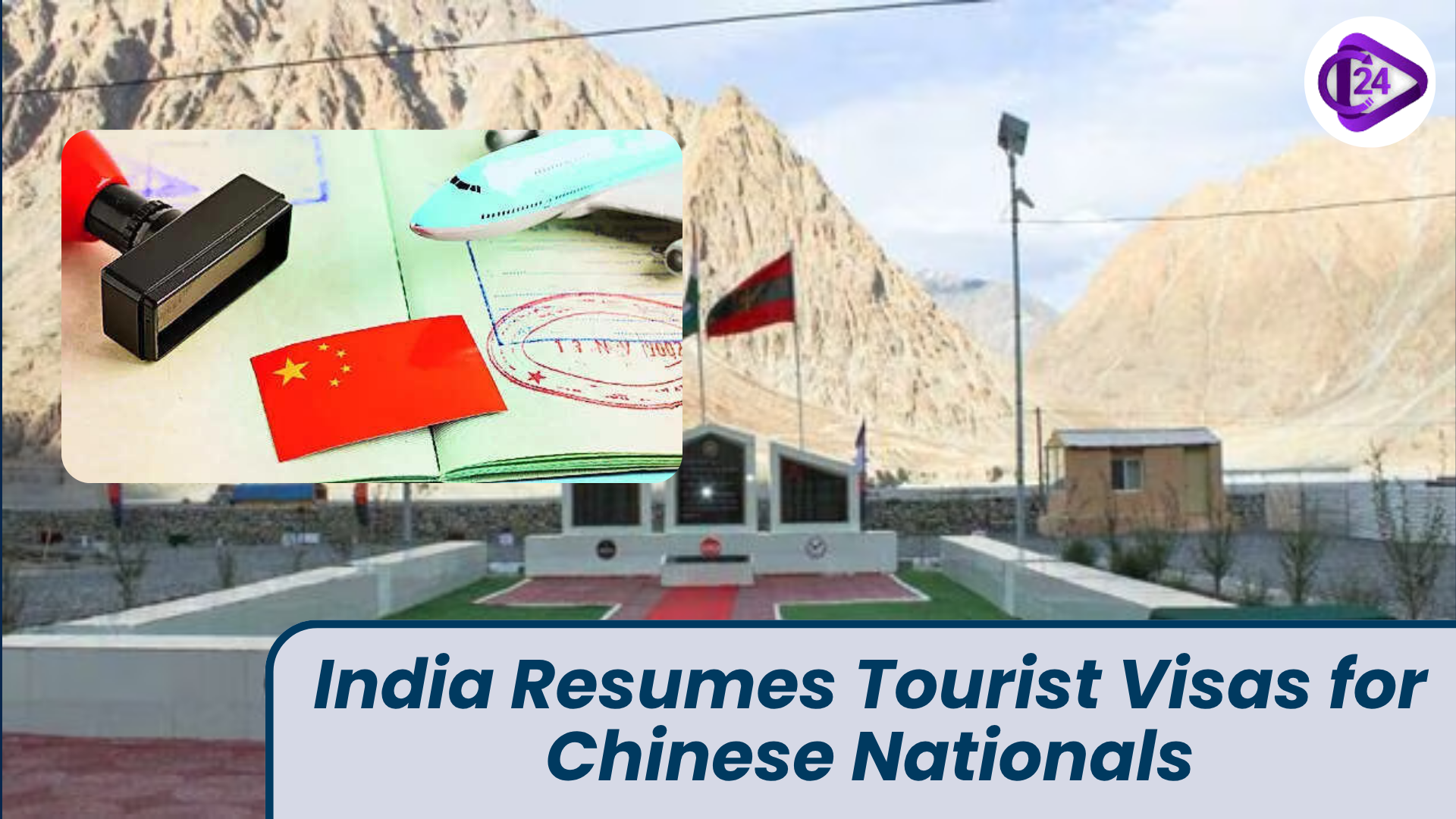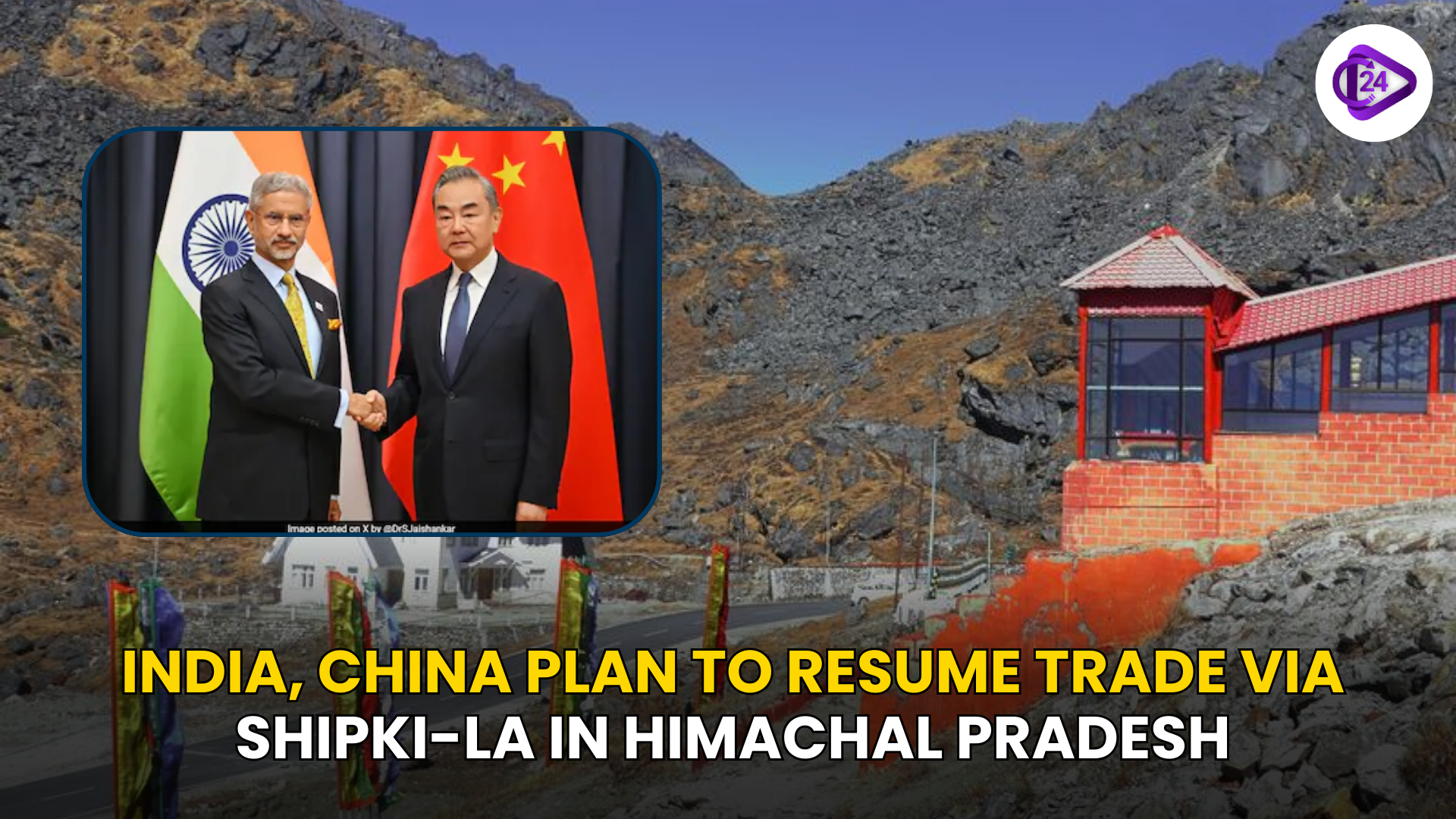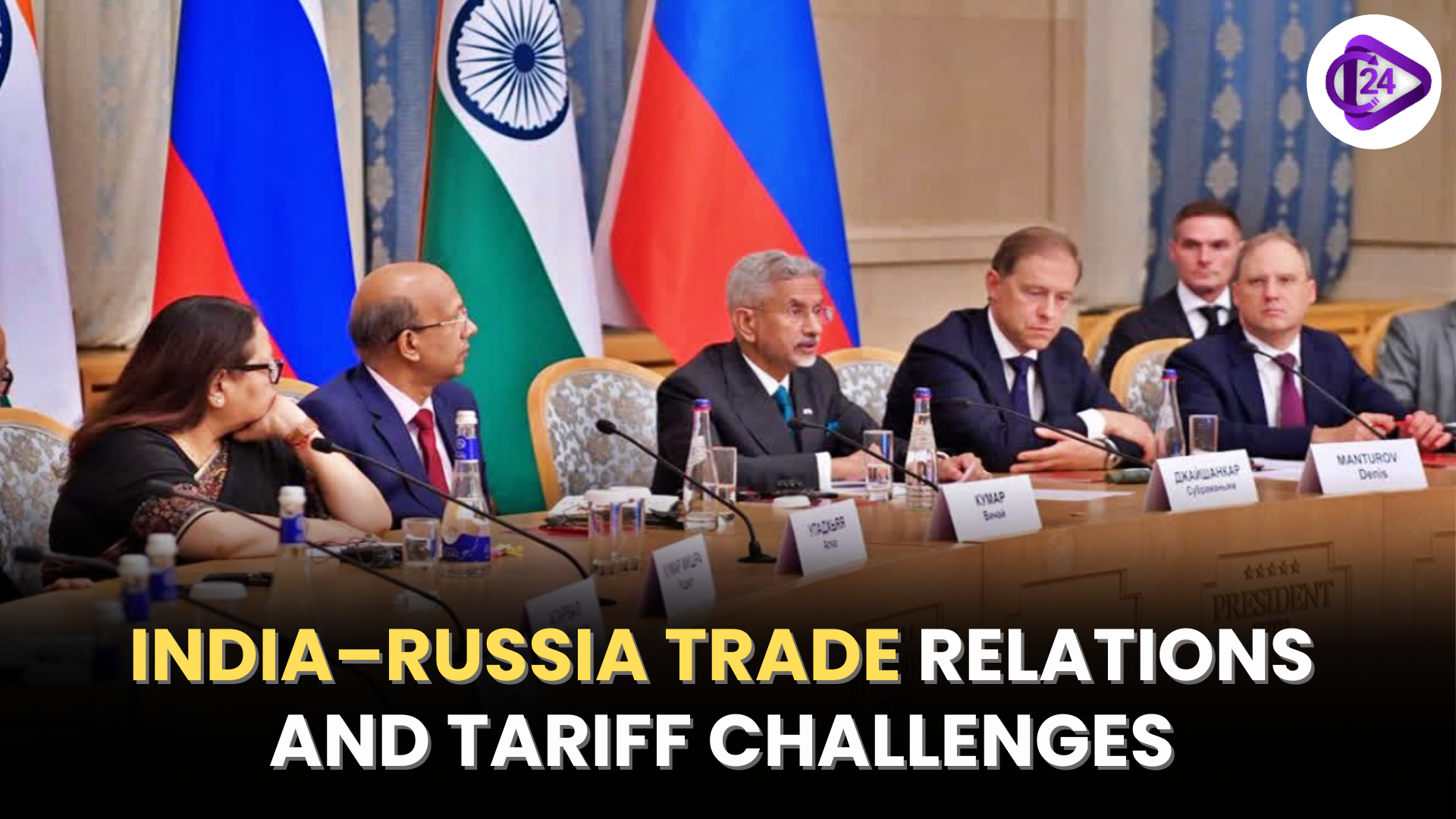
India has resumed issuing of Chinese tourist visas after a five year hiatus brought about by COVID-19 and the 2020 Galwan clashes. This is in a bid to normalize bilateral relations. They now qualify to apply online and have embassy appointments in Beijing, Shanghai and Guangzhou. This step was termed as positive by the Chinese Foreign Ministry. This is after discussing this at the highest level where External Affairs Minister S. Jaishankar recently travelled to China.
Context:
-
The relationship between India and China became bad after the 2020 Galwan Valley fight.
-
Most of the flights and visa services to both nations were suspended.
-
India was already back to business and student visas but not to the tourist visas- up until now.
-
Such a decision is part of softening the relations which has also been reflected in SCO meetings and Kailash Yatra talks.
Highlights of Visa Announcement
-
Tourist Visa Resumption: On July 24, 2025, Indian Embassy in Beijing announced the resumption of tourist visas.
-
Application Process:
-
Online application begins on Thursday
-
Their physical attendance is needed at the Indian Embassy (Beijing), and/or Consulates (Shanghai, Guangzhou).
-
Chinese response: The Chinese MFA describes the move as encouraging and intended to smooth international travel across borders.
Pre-COVID Travel Data
|
Category |
India to China |
China to India |
|
Tourist Numbers (2019) |
8,69,000 |
3,00,000 |
|
Visas Issued by China (Jan-Jun 2025) |
~85,000 |
— |
Preceding Diplomatic Relation
-
Modi-Xi Meeting October 2024, Kazan, Russia - deal to reestablish relationship.
-
July 2025 Visit to EAM Jaishankar: met Wang Yi and President Xi Jinping.
-
Kailash Manasarovar Yatra: China put it in the limelight as a goodwill gesture.
Brahmaputra river Hydropower Conflict
-
Medog hydropower station on Yarlung Tsangpo (Brahmaputra).
-
Issues of India and Bangladesh: Possible consequences of the downstream.
-
The Chinese position: Asserts sovereignty; ensures contact and sharing of data with the downstream nations.
Strategies and Diplomacy Implications
-
It is a major improvement in sour India-China relations after the Galwan.
-
May set the stage to greater tourism, commercial, and cultural interaction.
-
Restart of Kailash Yatra and issuance of visas imply the reestablishment of trust.
-
Otherwise ameliorating relations are another fraying point when it comes to river disputes.
Conclusion
Restoration of the tourist visa is a good indication of diplomatic relations between China and India. Although there is tension in the water-sharing disputes, both countries do strive to normalize the relationships with the help of people-to-people contacts and high-level diplomacy.



 Over 700 Armed Forces Personnel Set to Participate in ‘Exercise Bright Star 2025’
Over 700 Armed Forces Personnel Set to Participate in ‘Exercise Bright Star 2025’ India Partners with World Food Programme to Combat Global Hunger
India Partners with World Food Programme to Combat Global Hunger Strengthening Defence Ties: Indian Army Chief General Upendra Dwivedi’s Visit to Algeria
Strengthening Defence Ties: Indian Army Chief General Upendra Dwivedi’s Visit to Algeria India, China Plan to Resume Trade via Shipki-La in Himachal Pradesh
India, China Plan to Resume Trade via Shipki-La in Himachal Pradesh Hawaii’s Kilauea Volcano Erupts Again with 100-Foot Lava Fountains
Hawaii’s Kilauea Volcano Erupts Again with 100-Foot Lava Fountains Iran Conducts Naval Drill Sustainable Power 1404 – First Since War With Israel
Iran Conducts Naval Drill Sustainable Power 1404 – First Since War With Israel NASA Launches AI Model Surya to Predict Space Weather
NASA Launches AI Model Surya to Predict Space Weather Iran launches its first navy drill since war with Israel
Iran launches its first navy drill since war with Israel India–Russia Trade Relations and Tariff Challenges
India–Russia Trade Relations and Tariff Challenges SpaceX Prepares for 10th Starship Test Ahead of NASA Moon Mission
SpaceX Prepares for 10th Starship Test Ahead of NASA Moon Mission






